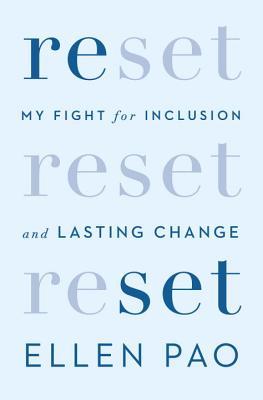View all notes
And so ambitious, money-hungry people began turning their attention away from Wall Street and toward the tech sector, idolizing the rapid ascent to billionaire status of the Google founders. Almost overnight, it seemed to me, the amount of money and money types pouring in changed the vibe. Even the new rich people were different. Famous rich guy of the earlier era Bill Gates was known for working hard and then for doing good with his money. His goal was a PC on every desktop. Famous rich guy of the new era Mark Zuckerberg was known for spitefully attending a VC meeting in his pajamas. His goal was making it easier to find women to date. The newest crop of billionaire boys included Evan Spiegel, who sent crude emails about trying to get “sororisluts” drunk enough to have sex with his frat brothers, and about peeing on a classmate. His goal was to enable nude selfies with self-deleting photos.
some interesting historical revisionism here, casting bill gates as a good guy lmao
At another point, after I had gone through all the problems with how other women and I were treated by Kleiner, the investigator asked in a “gotcha” tone, “Well, if they look down on women so much, if they block you from opportunities, they don’t include you at their events, why do they even keep you around in the first place?”
I hadn’t thought about it before. I replied slowly as the answer crystallized in my mind: “If you had the opportunity to have a bevy of workers who were overeducated, underpaid, and well experienced, that you could dump all the menial tasks you didn’t want to do on, that you could get to clean up all the problems, and that you could create a second class out of, wouldn’t you want them to stay?”
I noticed he didn’t write that down in his notebook.
this is actually pretty smart
Kleiner’s managing partners flouted hiring rules, too, asking inappropriate questions in interviews throughout my time at Kleiner, like, “Are you married? Do you have kids? How old are you? Are you thinking about having kids? What does your husband do? What did your ex-husband do?”
It was noted at some point that asking all these questions created a giant legal risk, and the response was, effectively, Well, who’s going to sue us?
“So we really want people who are twenty-six,” another managing partner stated, paying no attention to the seriousness of the discussion. “How can we hire more twenty-six-year-olds?”
The partners were always obsessed with twenty-six-year-olds. I think maybe it was because Larry Page and Sergey Brin of Google were around twenty-six when they met John.
The trainer looked startled. “You can’t,” he responded. “In hiring you have to look for the best people. To discriminate on the basis of sex, race, or age just isn’t legal.”
“Okay,” the partner tried again. “But what about a twenty-six-year-old mindset? How do we guarantee they have that?”
“Uh, you can’t,” the trainer repeated.
I wanted to point out to them: You’re asking this lawyer to help you discriminate. Of course he’s not going to give you advice on how to do it!
“But what if we asked them about things only twenty-six-year-olds would know…” the partner continued. Questions about the twenty-six-year-old gold-standard candidate continued.
“No, no, you can’t,” the trainer said uncomfortably. “We’ve got to move on.”
hahahaha this kills me every time
For years, I’d tried to believe in the story of Kleiner as a place where we were really trying to help entrepreneurs to build awesome companies and products. I’d believed that we were this team of people working together and that we were trying to be missionaries, not mercenaries. But eventually I’d come to see all that talk as a big lie. My parents raised me to believe that the world was a meritocracy, that if you worked hard enough you could get ahead. But that wasn’t true at Kleiner. It just wasn’t fair.
im sorry but this made me laugh out loud
In the wake of the verdict, I just wanted to hide, but in the months after the trial, I knew it would be good for reddit if I did a little bit of press. In April, Katie Couric sat down in our offices to interview me, even though I’d turned her down at first. Initially I didn’t want to do any video, but Katie was visiting her daughter at Stanford and asked to meet with me, and we got along well. She seemed so nice and genuinely empathetic, and she even shared some of her personal experiences with bias in journalism across her entire career. She was warm and professional, so I agreed to my first on-camera interview. I was very tightly wound and found it hard to relax, but she was fair and professional. I respected her and thought the interview went well.
why does she include all this unnecessary detail??? where was her editor
And so we left town on our first trip for fun in ages. For the first time in years, there were no calls scheduled, no emails to return, and no emergencies to handle. We went to Maui to see Lori, my old friend from Google. Our daughter loved Hawaii so much—from her first taste of shave ice to sunset hikes on the beach—and Buddy and I loved being on the beach, watching her frolic in the surf. The stress of the trial, the miscarriage, and all the other crises of the past few years had taken a toll on our marriage. I didn’t know what would happen with us. But I did know that, whatever happened, sitting together on the sand watching our little girl laughing in the sun would give us a wonderful memory.
i just???? what???

